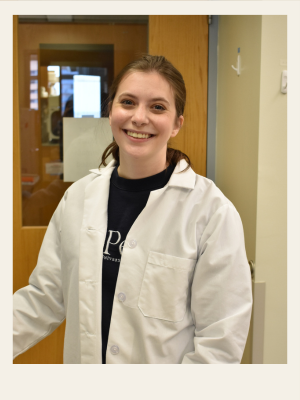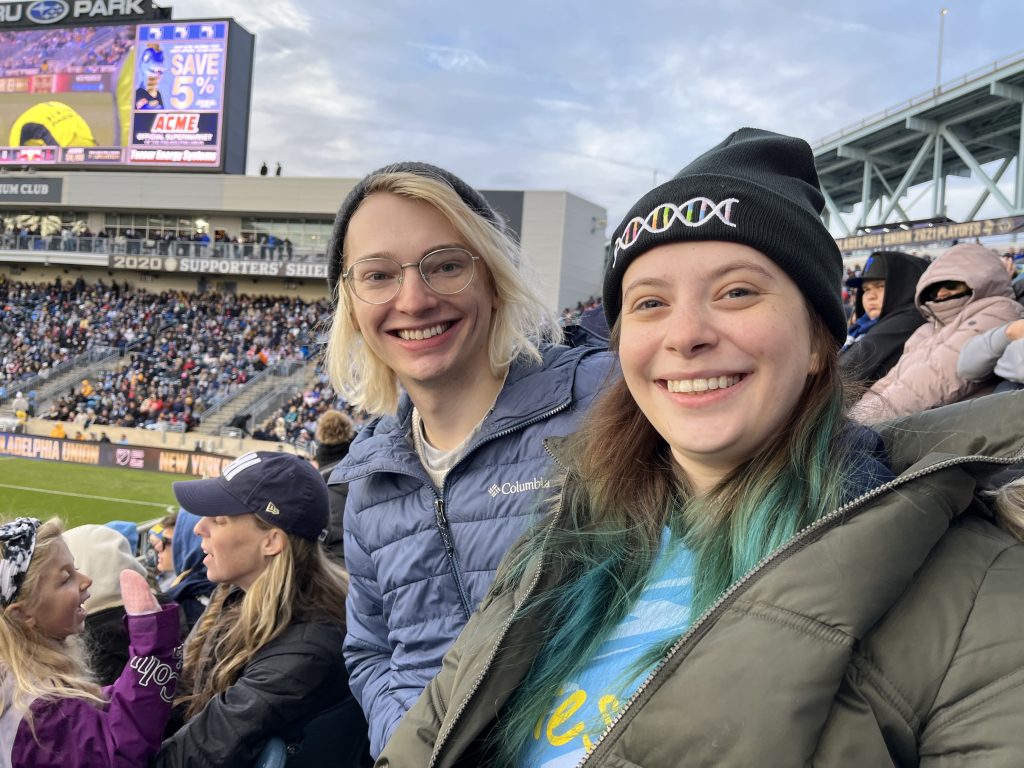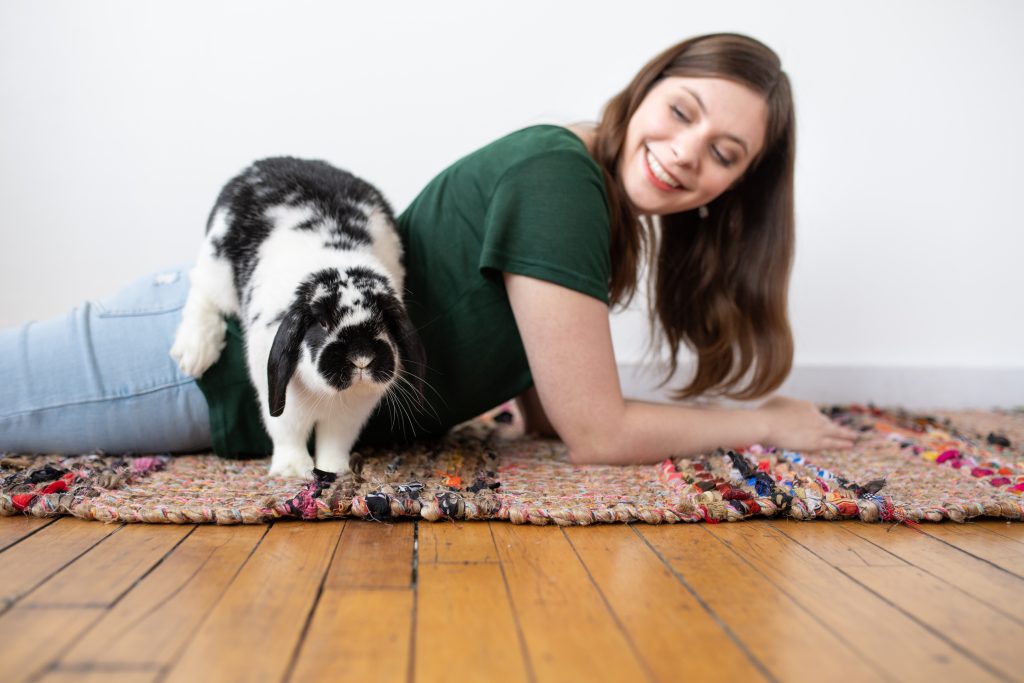
Beth Burton is a fifth-year Graduate Student in the Cell and Molecular Biology program in the Genetics and Epigenetics subprogram. She got her Bachelor of Science in Biochemistry and Molecular Biology and a Bachelor of Arts in Piano from Gettysburg College in 2018.
She started studying at Penn in 2018 and currently researches in the lab of Struan Grant and formerly with Casey Brown.
Her research project focuses on studying the genetics of late-onset Alzheimer’s Disease in the context of the brain cell type microglia.
We sat down with Beth to discuss how she found a passion for genetics research and her future in the field
A Young Creative
Creativity has always been a huge part of Beth’s life from playing piano to creative writing. She originally saw herself becoming a music teacher or writer.
“When I was really young, I wanted to be a horse. That didn’t work out so well, but I would say the first real career that I wanted was I really enjoyed creative writing when I was a kid, and so I always saw myself being a writer, writing stories, writing novels.”
Deep Personal Connections to Her Work
Beth credits general science courses in High School with her initial interest in Biology. Reading about the cell cycle, the “infamous” Krebs cycle, as well as molecular details motivated her to learn more.
But her love for it grew deeper when studying genetics linked intimately to her personal experiences with medicine.
“At that time in my life, I also was going through a lot of things medically. I had joint pain my entire life growing up, and doctors had always ascribed it to, ‘Oh, it’s just growing pains’ And then by the time you’re 16, they say, ‘Maybe it’s not growing pains’.
And I had serious issues with my jaw, so my temporomandibular joint was basically failing me. And around that time I got diagnosed with the genetic disorder Ehlers-Danlos Type III Syndrome.”
💡 Ehlers-Danlos Syndrome is a group of inherited disorders that affect your connective tissues — primarily your skin, joints, and blood vessel walls. Connective tissue is a complex mixture of proteins and other substances that provide strength and elasticity to the underlying structures in your body.
Beth says she was fascinated to know scientists had not found the mutation that caused Ehlers-Danlos Type III. She mentions it was the first time she became realized that there are genetic disorders that are not fully understood.
“Up to that point, we talked about things like sickle-cell anemia, which has a single base pair change, and various chromosomal disorders that are very easy to diagnose because they’re very obvious on a karyotype.
That got me interested just in general in those kinds of genetic disorders, like multifactorial genetic disorders. And also because of the diagnosis that I had, I really ran with it after that and started dedicating myself to focus on science.”
Music and Science
Even though science has become Beth’s primary work, music remains a big part of her life. She even says that her musical background contributes to her understanding of biology.
“But I still loved music which is why going to Gettysburg College and having a music conservatory combined with the rest of the school was fantastic in the sense that I could do both things I loved: get my degree in science and then still get to do music full time.
Now I’m not as active as I was when I was a music student, but I don’t regret getting that degree. I feel like it also helped me a lot in the sciences. Just going up and giving a talk in front of an audience of people doesn’t really feel like a stressful thing when you’ve had to go up and play an entire recital by memory. Like nothing.”
Do you feel like your experience with music contributes in other ways to your research?
“I think it really helps in the creative aspect because you have to have that creative brain in terms of interpreting music. And so it helps come up with fun experimental ideas and to approach things from perhaps a novel perspective in a practical sense, like hand dexterity, playing piano- it made pipetting very easy, I’ll say that.”
Beth is also a huge Philly sports fan! She talks passionately about growing up watching the Eagles and Phillies while being involved in the city’s vibrant soccer culture.

“Give Back in the Way I’ve Received”
When asked where she sees her future in research, Beth considers possibly becoming a P.I. in her own lab. She fondly mentions how mentors and a robust support system got her to where she is today
“I would love to be that person for me in the future, someone coming through, wanting to make a difference for human health and genetics.”
She wants to continue researching Alzheimer’s and other multifactorial diseases because advancements would affect thousands of lives.
“I’ve thought about if I want to study my own genetic disorder. Would that be too personal? But I don’t know. There’s not a lot known about it. I could certainly contribute in that way, and it could be a cool way for my story to come full circle from getting diagnosed, getting interested in the field, to actually working on my own disease.”

You can check out Beth on LinkedIn or Twitter at @BethBGenetics